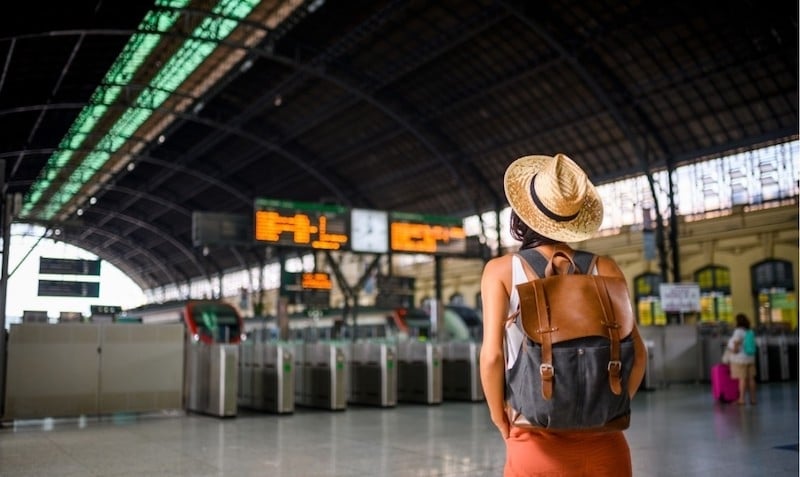Most seasoned travellers would agree that learning the local language of a destination often makes for a better experience. Sure, in many crowd favourite countries, you can easily get by with only English. And yes, more often than not, locals are quite welcoming and accommodating to foreigners who don’t speak their native tongue. But wouldn’t it be better when you don’t have to worry so much about miscommunication, especially in a place where English is not widely spoken?
Clearly, learning a new language is often challenging. And while you don’t have to be a fluent speaker by the time of your trip, knowing at least the basic terms and phrases would be a huge difference. On the other hand, you can also opt for a language that is somewhat closer to your own; usually, the destination where that language is spoken is probably nearer to your home country, too!
Anyway, regardless of how long you’ll be staying in a particular destination, it’s definitely great to learn the local language before your trip! Also, aren’t you looking forward to having more meaningful travels after almost a year-long hiatus? But if that’s not enough to convince you, here are all the top reasons why you should learn the local language.
1. For starters, it’s simply good manners

Learning the local language of a destination shows that you’re being a gracious guest in their land. After all, many (if not all) locals actually appreciate hearing foreign travellers speaking their lingo, since it shows that you’re interested in them and their culture. It doesn’t matter if your grammar and accent are far from polished; a little effort goes a long way in making a good first impression!
2. It allows you to connect better with the people

Apart from good manners and first impressions, it also helps you establish rapport with the locals you interact with, however fleetingly. Granted, some cultures are friendlier than others. But if there’s one way to easily make locals feel at ease around a foreigner, it would be using even at least the basic phrases when speaking to them.
This is because most people would prefer a visitor who makes an effort to speak their language, rather than someone who expects other people to adjust to them. So chances are, they’re more likely to warm up to and trust you! And in case you’re wondering why you should care about how they view you, well…
3. It would make your trip a lot easier

The more that locals feel inclined to help you, the more convenient your trip will be. And what better way to ensure this than by learning to say basic phrases when asking them for help; whether it’s asking for directions or inquiring about the best places to visit from a local’s point of view?
Alternatively, you’d also be able to read directions, warnings, and other signs on your own while exploring the surroundings. Either way, learning the local language will definitely come in handy should you ever decide to visit a particular destination again!
4. It helps you feel more at ease

Not to say that you should throw caution to the wind, of course. But simply put: don’t you feel calmer when you’re in a room where you know what the people are talking about? The same goes for when you’re exploring a foreign place where you barely know the language. While this shouldn’t hinder you from choosing to travel there, you’ll certainly be less likely to feel anxious when you can understand most of what the locals are saying.
Perhaps a good example would be when taking cabs at night. Regardless of how safe your destination may supposedly be, sometimes one can’t help but still be paranoid about what could go wrong. That said, wouldn’t you feel safer when you know you can understand what this particular local is saying in your presence? Another example would be those who scam foreigners, thinking they’re easy targets. Anyway, should something like this happen to you (knock on wood), you’d be able to easily explain what happened to local authorities!
5. It’s good to know the right words or phrases to say

And at the same time, what you probably shouldn’t say, too! In sum, learning the local language helps you avoid miscommunication (and potentially awkward misunderstandings) with the people you’ll interact with.
Sure, you don’t have to be fluent and you might still have a blooper here and there. But at the very least, you won’t be that traveller who struggles to communicate even the simplest things to locals. Again, it’s proper etiquette to be the one to adjust to them! (Read: Don’t be that entitled visitor.) Hence, this also minimises the chances of something getting lost in translation.
Also read: How Learning Languages Changed Everything for These Filipino Polyglots
6. It’s a great way to fully immerse in the culture

Language is one of the most important aspects of any culture, that much is true. After all, language shapes the overall culture of a particular place, and vice versa. In fact, some would probably say that it’s impossible to have a deep understanding of a country’s culture without knowing at least the basics of the local language. Granted, we usually adopt a “To each his/her own” mentality when it comes to travel preferences.
But of course, one cannot deny the valid points of the mentioned argument. Because once you learn to communicate with the locals, you’ll also have a better grasp of their way of life. That said, the more you study a lingo, the better you’ll understand the ‘soul’ of your chosen destination — and in turn, the deeper your travel experience will be!
7. The more (local words and phrases you know), the merrier

In relation to our previous points, learning the local language is a fantastic way to learn more about your destination. Here in TripZilla, we’re all for the belief that there’s no such thing as having too much knowledge when it comes to travelling! Hey, the more you know, right? Certainly, this should apply to other things beyond trivia, under-the-radar spots, and other fun facts about a place.
8. It helps you travel better

Chances are, when you have a good grasp on the local language, you can plan your itinerary better. Instead of sticking to the usual (and often expensive) tourist attractions, why not go beyond these and explore places that are possibly best-kept secrets among locals? And given that you’ll have more independence to roam your destination, you never know what you could stumble upon!
9. That local language might come in handy again someday

Whether or not you’re planning to go back to that destination again, you never know when you could use the new language you’ve learned! After all, the more you travel through the years, the more likely that you could use your language skills in different places. This is especially true if it’s a language spoken in more than one country!
Alternatively, it might also prove to be useful even when you’re back home. Say, a work conference with other countries, or even just an everyday interaction with expats in your neighbourhood. In short, you’ll get to meet people you never might have met otherwise.
10. Learning a new language is good for you in general!

Even beyond the aspect of travelling, it has been proven that learning and practising a new language has terrific benefits. For one, it helps strengthen your cognitive skills, while also allowing you to improve your ability to communicate across different cultures. That said, it’s certainly a skill that you’d be able to use even when you’re not out there exploring!
Also read: These Are the Most Popular Languages of 2020, According to Duolingo
Now that we’ve talked about the importance of learning the local language prior to your trip, doesn’t this make you look forward to your future travels even more? Granted, we might still have to wait a bit longer till it’s completely safe again. In the meantime, why not pick out a particular foreign destination you’d love to visit soon — and then start studying a new language or two?
So, have you already decided on where you’re travelling next? And if so, what’s the common language spoken there (aside from English)? Share your thoughts in the comments!





